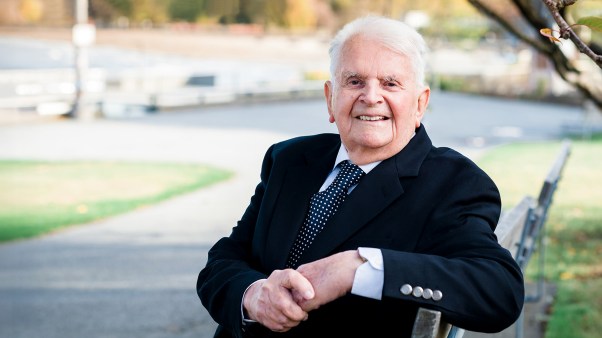This past year my wife and I conducted an experiment. We decided to go through the Yellow Pages under “Churches” and visit each one listed in our local phone book. Although we live in a small town, we found representatives of most denominations, as well as several unaffiliated churches—a total of 24 congregations if you leave out fringe groups like Jehovah’s Witnesses.
I learned that churches offer wide variety these days. A few still have organs and choirs, whereas most feature worship bands with electric guitars and drum sets. Oddly, a Church of Christ that forbids musical instruments because they are not mentioned in the New Testament sees no contradiction in projecting hymns on PowerPoint slides. At some churches attendees dress up; at others they wear blue jeans and cowboy boots (I live in Colorado, after all). Churches meet at 7, 9:30, 10:30, and 11 A.M. on Sunday morning, a few meet on Saturday night, and one Lutheran church even meets on Thursday night. Some follow a prescribed liturgy; others apparently make up the order of service on the fly.
With an intuition difficult to explain, I could usually sense the “aliveness” of a congregation within five minutes. Were people conversing in the foyer? Did I hear the sound of laughter? What activities and issues did the bulletin board highlight?
To my surprise, the aliveness factor had little to do with theology. In two of the most conservative churches, members slumped in their seats and glumly went through the motions, even as the pastoral staff conveyed the distinct impression that their primary goal was to get to the benediction. Meanwhile, a liberal church (it had rewritten familiar hymns and even the Lord’s Prayer to make them politically correct) showed the most energy in community and global outreach programs.
Thanks to this experiment, I now have a clearer picture of the qualities I look for in a healthy church.
(1) Diversity. As I read accounts of the New Testament church, no characteristic stands out more sharply than this one. Beginning with Pentecost, the Christian church dismantled the barriers of gender, race, and social class that had marked Jewish congregations. Paul, who as a rabbi had given thanks daily that he was not born a woman, slave, or Gentile, marveled over the radical change: “There is neither Jew nor Greek, slave nor free, male nor female, for you are all one in Christ Jesus.”
One modern Indian pastor told me, “Most of what happens in Christian churches, including even the miracles, can be duplicated in Hindu and Muslim congregations. But in my area only Christians strive, however ineptly, to mix men and women of different castes, races, and social groups. That’s the real miracle.”
Diversity complicates rather than simplifies life. Perhaps for this reason we tend to surround ourselves with people of similar age, economic class, and opinion. Church offers a place where infants and grandparents, unemployed and executives, immigrants and blue bloods can come together. Just yesterday I sat sandwiched between an elderly man hooked up to a puffing oxygen tank and a breastfeeding baby who grunted loudly and contentedly throughout the sermon. Where else can we go to find that mixture?
When I walk into a new church, the more its members resemble each other—and resemble me—the more uncomfortable I feel.
(2) Unity. Of course, diversity only succeeds in a group of people who share a common vision. In his great prayer in John 17, Jesus stressed one request above all others: “that they may be one.” The existence of 38,000 denominations worldwide demonstrates how poorly we have fulfilled Jesus’ request. I wonder how different the church would look to a watching world, not to mention how different history would look, if Christians were more deeply marked by love and unity. Perhaps a whiff of the fragrance of unity is what I detect when I visit a new church and sense its “aliveness.”
(3) Mission. The church, said Archbishop William Temple, is “the only cooperative society in the world that exists for the benefit of its non-members.” Some churches, especially those located in urban areas, focus on the needs of immediate neighborhoods. Others adopt sister churches in other countries, support relief and development agencies, and send mission teams abroad. Saddest of all are those churches whose vision does not extend beyond their own facilities and parking lots.
In my visits I never found a perfect church (nor should we expect to, if the New Testament gives any indication). But when tempted to judge, I simply remind myself that disappointment with the church traces back to God’s own bold experiment: to allow ordinary people like us to embody his presence on earth.
Copyright © 2008 Christianity Today. Click for reprint information.
Related Elsewhere:
Yancey’s previous columns are available on our site.










